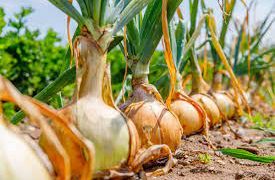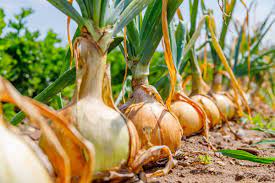Onions are a vital crop worldwide, consumed in many dishes and cuisines. To achieve maximum yields, farmers and growers must ensure that their onion plants receive all necessary nutrients, including phosphorus. This article will explore the role of phosphorus fertilization in onion production and its effects on plant growth and yield.
Phosphorus is an essential macronutrient that onions require in adequate amounts for optimal growth and development. Studies have shown that phosphorus fertilization can significantly increase onion yields, particularly in areas with low soil phosphorus levels. According to research conducted by the University of California, Davis, the optimal amount of phosphorus for onion production is around 150 lbs/acre.
One reason why phosphorus is critical for onion production is that it plays a vital role in root development. A study published in the Journal of Plant Nutrition and Soil Science found that phosphorus fertilization enhanced root growth and development in onion plants, resulting in increased nutrient uptake and water absorption.
Furthermore, phosphorus is necessary for proper bulb formation, which ultimately affects onion yield. A research study conducted by the University of Arizona showed that phosphorus fertilization increased onion bulb size and weight by up to 50%. The study also found that phosphorus fertilization enhanced the overall quality of the onions, resulting in higher market value.
In conclusion, phosphorus fertilization is crucial for onion production. Adequate phosphorus levels in the soil ensure optimal root growth, bulb formation, and high yields. Farmers and growers should consider phosphorus fertilization as part of their onion crop management practices to maximize their production and profit.
Tags: #onionproduction #phosphorusfertilization #cropmanagement #soilhealth #plantnutrition































